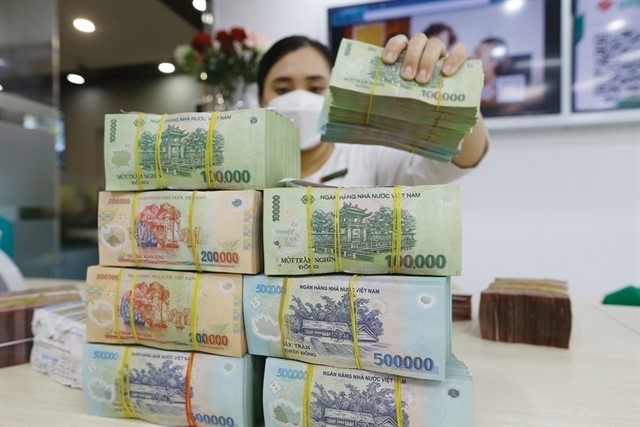The bad debt ratio of the banking system as of the end of May 2024 was at 4.94 per cent, higher than the 4.55 per cent at the end of 2023

Bad debts in the banking system in the first five months of 2024 have continued to increase by some VNĐ75.9 trillion against the end of 2023.
Việt Dragon Securities Company (VDSC) cited the latest data from the State Bank of Vietnam (SBV) showing that the bad debt ratio of the banking system as of the end of May 2024 was at 4.94 per cent, higher than the 4.55 per cent at the end of 2023.
The data also shows debts, which had the repayment period to be restructured, and the debt group changed according to Circular No 06/2024 and Circular No 02/2023 of the SBV, increased quite sharply by 25.5 per cent compared to the end of 2023 to VNĐ230.4 trillion.
At the same time, the number of borrowers, who had the repayment period restructured and the debt group unchanged, also surged sharply from 188,000 to 282,000 as of the end of June 2024.
The SBV early this month decided to allow commercial banks to reschedule the debt repayment period and maintain the debt group for certain sectors for an additional six months to the end of 2024, instead of June 30 this year.
The extension is expected to reduce pressure on companies which are struggling to service their debts and support economic recovery under the current challenging economic situation. The extension was made following reports show while existing bad debts have not been resolved, new bad debts were expected to surge with the payment deadline on certain sectors expiring at the end of this month.
The extention is welcomed by most businesses, as well as the banking sector, both of whom were concerned over their ability to meet the payment deadline of June 30.
According to the SBV, credit by the end of June 2024 increased by about 6 per cent compared to the beginning of the year, reaching nearly VNĐ14.4 quadrillion. The central bank still has to control risks, ensure the safety of the banking system and focus on economic growth drivers, including those meeting new trends such as green credit.
Experts attributed the high credit growth in the first half of 2024 to recovery in loan demand, promotion in public investment, tax and fee reduction policies and implementation of preferential interest rate lending packages.
They forecast loan demand in the second half of this year will continue to accelerate thanks to macro economic recovery. The manufacturing sector has shown signs of recovery, the industrial production index in the past six months was estimated to increase by 7.54 per cent over the same period in 2023. — VNS





